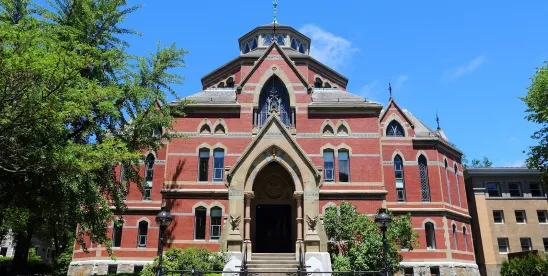In a recent case involving the application of the Board’s standard for the employee status of graduate students, the National Labor Relations Board (“NLRB” or the “Board”) denied a request for review of a Regional Director’s (“RD”) decision finding that graduate students seeking a Masters of Fine Arts (“MFA”) degree in acting and directing at Brown University are not employees under the National Labor Relations Act (“NLRA” or the “Act”). Brown University, Case No. 01-RC-305104 (Aug. 9, 2024). This decision, like the recent MIT ruling, puts another outer limit on the NLRB’s broad Columbia test for employee status under the Act.
Background – NLRB Standard for Employee Status of Students
The Board’s current standard for determining whether graduate students performing teaching and research services for the university are employees is set out in its 2016 seminal decision Columbia University. In Columbia, the Board established a two-pronged test for common law employee status: “the payment of compensation, in conjunction with the employer’s control, suffices to establish an employment relationship for the purposes of the Act.”
In finding that, based on the factual evidence, the student assistants were employees, the Columbia Board reasoned that these students performed services for the university under the direction and control of faculty members in exchange for funding. However, the Board in Columbia importantly distinguished graduate student assistants satisfying the common-law employment standard from non-employee students who “simply pursue their educational goals at their own discretion, subject only to the general requirement that they make academic progress.”
Regional Director’s Decision
On April 6, 2024, a Regional Director (“RD”) issued a decision dismissing a union petition seeking to represent graduate students in Brown University’s MFA program for actors and directors. The graduate students in the MFA program participate in various theatrical performances—as actors, directors, and ushers—as part of their curriculum. Applying the Board’s Columbia standard, the RD determined that the graduate students sought in the petition were not employees under the NLRA.
The RD found that the acting, directing, and ushering performed by the graduate students did not constitute services provided for the university because the productions that the graduate students participate in do not constitute a key business operation or a significant revenue-producing activity for the university. Additionally, the RD concluded that the graduate students did not get paid in exchange for their participation in university productions. Rather, the graduate students’ funding packages, including tuition remission, fellowship funding, and financial aid, are provided to help them obtain their academic degrees.
Board Denial of the Union’s Request for Review
The union filed a request for review with the NLRB, and the Board denied the request, holding that “it raises no substantial issues warranting review.” In denying the union’s request, the Board relied on the RD’s finding that the students are not employees under the Act but rather individuals receiving funding to help them make academic progress and obtain their degrees. Unlike the student assistants in Columbia who satisfied the common-law employment standard, the graduate students at Brown “simply pursue their educational goals at their own discretion, subject only to the general requirement that they make academic progress.”
The facts in the record established that the funding packages provided to the graduate students did not constitute payment in exchange for their acting, directing, or ushering roles, particularly where the amount of students’ funding did not depend on the number of productions they did or the amount of time they spent in those productions. Indeed, there was no indication that any graduate student would lose their funding or receive a reduced amount if they were unable to participate in one of those productions.
However, the Board made clear that, in denying the request for review, it did not rely on the RD’s further findings that the graduate students did not provide services to the University (i) because their involvement in theatrical productions has “pedagogical” value; or (ii) because theatrical productions do not advance “a key business operation” of the university.
Takeaways
While the Board’s denial was on narrow grounds, it serves to further elucidate the outer limits to the Board’s broad employee status Columbia standard, and the extent to which graduate students will be found to be employees under the Act. The funding provided to graduate students who arguably provide some service to their university must bear out an employment relationship—it must be in exchange for the services provided.
As always, we will continue to keep you informed of the latest in higher education unionization.





 />i
/>i
